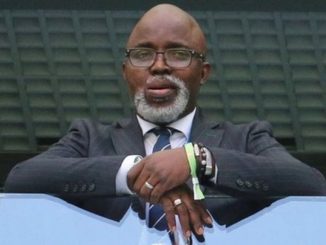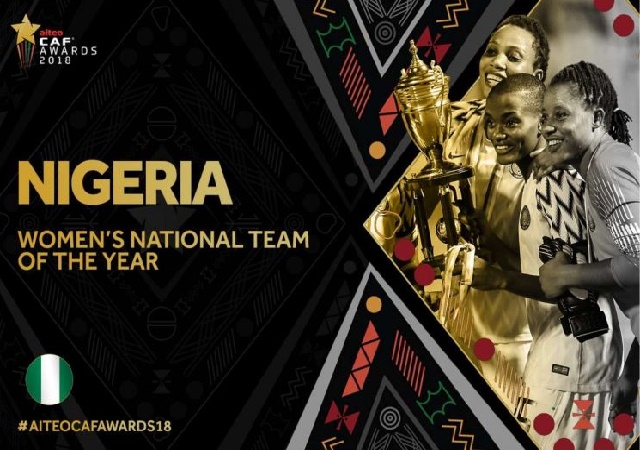![Armed Security Operatives Invades NFF Office In Abuja, Bundles NFF President, Amaju Pinnick Out Of Seat [Details]](https://www.gistlover.com/wp-content/uploads/2018/07/nff.jpg) CAF Appoints Troubled Amaju Pinnick As 1st Vice President
CAF Appoints Troubled Amaju Pinnick As 1st Vice President
Troubled Nigerian outgoing NFF President, Amaju Pinnick, has been appointed as the new first vice president of the Confederation of African Football (CAF).
The appointment of Amaju Pinnick was necessitated by the resignation of Kwesi Nyantakyi, who was also formerly the president of Ghana Football Federation, from the post, and the appointment announcement was conveyed in a letter signed by CAF general secretary, Amr Fahmy, dated July 5, 2018.
‘’Following the resignation of the 1st Vice President, Mr Kwesi Nyantakyi, CAF President, after consulting the members of the Emergency Committee, appointed Mr Amaju Melvin Pinnick as 1st Vice President,” reads the letter.
“This decision is immediately applicable, in accordance with article 27 para 2 of the Statutes, which will be ratified by the Executive Committee in its session scheduled on the 27 ad 28 September 2018. We thank you for kindly taking note’’.
Before the recent announcement, Amaju Pinnick who was a member of the Organizing Committee of the FIFA World Cup and currently the head of Africa Cup of Nations committee was locked in a fight with Chris Giwa over who the authentic president of the NFF is.
Few days ago Giwa, accompanied by a host of cronies, arrived the NFF offices at about 12.00pm to enforce a Supreme Court ruling, which voided the election of Mr. Pinnick.
But in a swift reaction Mr. Pinnick, insisted that he was still the president of the NFF declaring that the directive by the Sports Minister, Solomon Dalung for Giwa to take over the NFF headquarters, is null and void. Speaking through NFF lawyer Mr. Festus Keyamo, Pinnick argued that court orders are non binding on the NFF.
The long-running dispute over who is in charge of the NFF dates back to 2014. Two different congresses of the NFF emerge with Giwa elected by one congress in Abuja, while the second congress held in Warri elected Pinnick. However, FIFA endorsed Pinnick’s election leaving Giwa to battle for redress in the courts. FIFA statutes dictate that member states should “manage their affairs independently with no influence from third parties”.



